sidetracks & detours present PASS IT ON # 71 weekly supplement Sunday 13 10 2024
sidetracks & detours
present
PASS IT ON # 71
weekly supplement Sunday 13 10 2024

Hear The Call
COME FOLLOW YOU ART
by Akela
It was great to see this e mail missive from Steve Cooke land safely on my e mail runway. I have fond memories of the Castleton Literary and Scientific Society, and I am still amazed at the broad church of their ethos and of their congregation.
It will be twenty years or so now since I was invited to give a talk there with my chosen topic being on Where Imagination Begins. By coincidence that was in the same season in which my Uncle Bill from Tadcaster, Yorkshire had been invited across the Pennines to give a talk to the Society on the History Of Honey (and the buzzing of the bees). My talk was quite well received and a lot of fun to deliver, but as I left the event I heard a lady say to her husband, “he was pretty good, the poet, didn´t you think?” I pricked up my ears, only to hear the gentleman reply, ¨Well, he was alright, …but he was nowt on that beekeeper chap the other week.”
The prospectus for the new season includes writers I remember well from my time in Rochdale. Val Chapman´s night of leading a Number One Writers creative writing group performance should be excellent and Ian Aithchinson has been writing Rhymes For Our Times, dealing with the times of a struggling NHS and the threat of Covid. His poetry is sympathetic and empathetic and always laced with some laugh out loud humour.


CONTENTS
1 ) Castleton Literary And Scientific Society A NEW SEASON preview: By Steve Cooke
2 ) Live Jazz STEVE WATERMAN´s Latin Jazz Quartet by Trevor Bannister
PERFECT STRANGER: Unfinished Business album tour
Jazz On Air hot biscuits presented by Steve Bewick
3 ) Live Music
NICOLA MEECHAM, Menuhin Room, review by David Green in newsletter
Live Music Coming To The Camel House THE IKARO QUARTET October 18th at 19.00 preview by newsletter
Live Music SNARKY PUPPY at sea previewed by promotional literature
Live Music Coming In 2025 BRUCE SPRINGSTEEN & E Street Band previewed by I Love Manchester newsletter
4 ) Island Insights Live And Recorded Music RIKABANDA, by Norman Warwick
5) Reader´s Perspective: All Points Forward CHANGING FACE OF MUSIC ROW by Peter Pearson


1 ) all across the arts by Steve Cooke
Castleton Literary & Scientific Society
A NEW SEASON
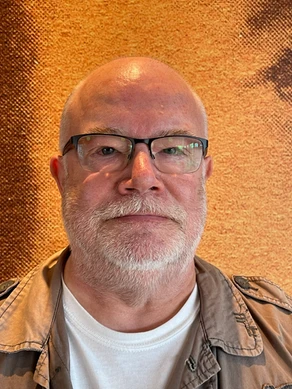
After a short delay in finding a new venue, due to the redevelopment of Castleton Community Centre, Castleton Literary and Scientific Society have launched the programme for this season.
Since 1894, the Castleton Literary and Scientific Society has presented meetings and lectures maintaining the early society constitution: “The object shall be to arrange lectures, essays and discussions that will enable members to be in touch with modern thought and criticism in all branches of general culture and scientific research.”
Programme for 2024-2025, their 130th year:
Illustrated talks
October 11: President´s Evening,
Diane Cornforth Gardener – Botanic Gardens
October 25: Tales From The Blood Bikes – Peter Leonard, Practice and anecdotes of a vital service;
November 8: Rhymes For Our Times – Ian Aitchison – a hilarious romp through the recent bizarre goings on in Rochdale;
November 22: The Concept Of A Passive House – Jim Race – low energy housing;
November 29: St Nicholas Pays A Visit Peter Duczak:
Traditions Of Our Ukrainian Community,
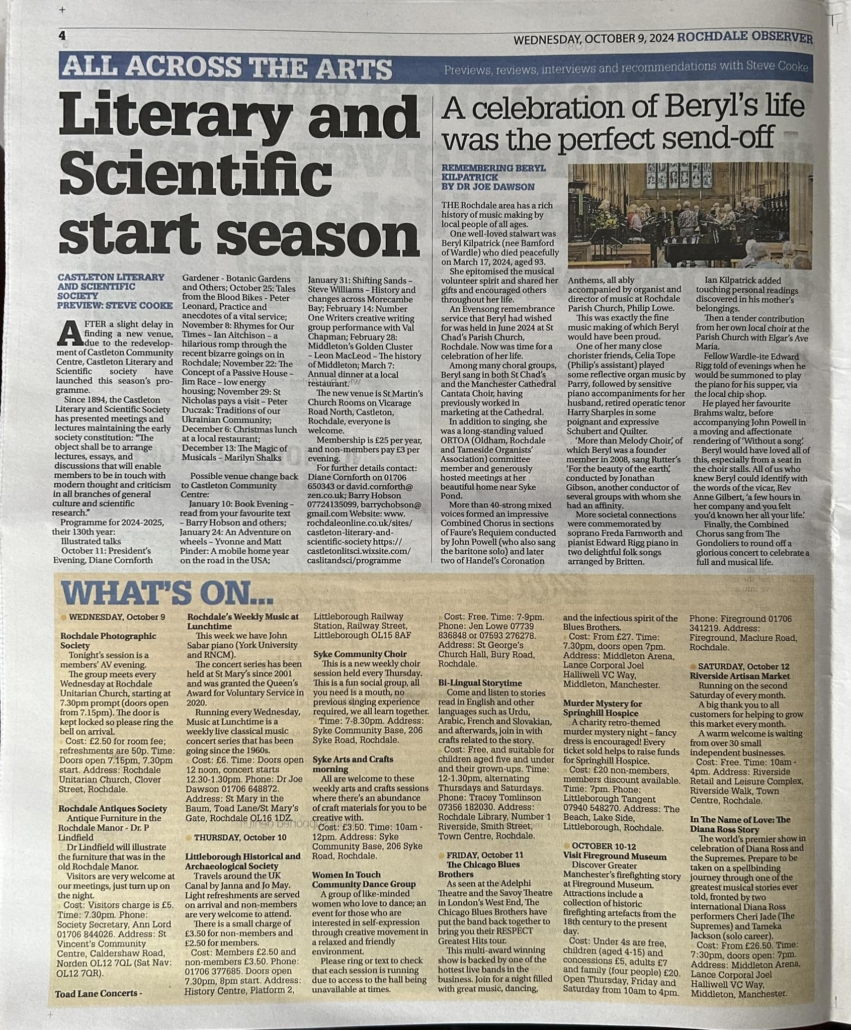
December 6: Christmas lunch at a local restaurant;
December 13: The Magic Of Musicals – Marilyn Shalks.
Possible venue change back to Castleton Community Centre:
January 10: Book Evening – read from your favourite text – Barry Hobson and others;
January 24: An Adventure On Wheels – Yvonne and Matt Pinder: A mobile home year on the road in the USA;
January 31: Shifting Sands – Steve Williams – History and changes across Morecambe Bay;
February 14: Number One Writers creative writing group performance with Val Chapman;
February 28: Middleton´s Golden Cluster – Leon MacLeod – The history of Middleton;
March 7: Annual dinner at a local restaurant.
The new venue is St Martin´s Church Rooms on Vicarage Road North, Castleton, Rochdale, everyone is welcome.
Membership is £25 per year, and non-members pay £3 per evening.
For further details contact: Diane Cornforth on 01706 650343 or david.cornforth@zen.co.uk; Barry Hobson 07724 135099, barrychobson@gmail.com.


2 ) Jazz at Progress
Friday 27th September
Steve Waterman’s Latin Jazz Quartet
Steve Waterman trumpet & flugelhorn John Donaldson piano, Rob Statham bass, Buster Birch drums
Review by Trevor Bannister
The new season of Jazz at Progress opened to a full house on 27 September in the welcome company of Steve Waterman’s Latin Jazz Quartet, four musicians of world class stature steeped in the excitement, language, rich heritage and joyfully expressive spirit of what Jelly Roll Morton, the legend of early classic jazz, termed ‘the Spanish tinge’.

Steve Waterman is one of the greatest of contemporary brass players whose distinct sound and style immediately lit up the stage with the first notes of Paquito d’ Rivera’s ‘Chucho’. This gentle, medium paced tribute to pianist/composer Chucho Valdes, the ‘God Father’ of Cuban jazz, also reminds us that on more than one occasion Waterman has graced the trumpet section of Chucho’s band at the Havana Jazz Festival. Can there be any higher accolade than that?
‘Recardo Bossa Nova’, written by Djaima Ferreira and Luis Antonio, lays claim to being the first bossa nova to be recorded, originally as a vocal and subsequently by a host of artists as an instrumental. Tenor saxophone star Hank Mobley brought it to the attention of hard bop fans as a feature on his 1965 Blue Note album, ‘Dippin’ – though as a floating samba, in which form the Waterman Quartet delighted the Progress audience. Great solo excursions by Waterman on flugelhorn and John Donaldson at the piano.
The mournful press rolls of Buster Birch’s snare drum and Waterman’s piercing trumpet, set the scene for Astor Piazolla’s ‘Oblivion’, an extraordinarily beautiful, yet emotionally devastating tango.
The hard driving mambo, ‘Oye Como Va’, quickly restored the spirits. First recorded by Tito Puente in 1962 and later to even greater acclaim by Carlos Santana, it’s an anthem for good times and an open invitation to dance.
Pianist composer Horace Silver used the ‘Spanish tinge’ to great effect on many of his compositions. He possessed that rare gift of coming up with catchy tunes that provided plenty of scope for jazz expression. ‘Nica’s Dream’, dedicated to Baroness Pannonica de Koenigswarter, is a case in point. This patroness of jazz was believed to have been named Pannonica, after a species of butterfly. The tune expresses the attributes of this delicate creature. Only in later years did someone shatter this beautiful imagery by declaring that a Pannonica is in fact a moth! No matter, this knowledge didn’t get in the way of a spellbinding performance from the quartet, with John Donaldson’s dazzling piano to the fore.
One doesn’t usually think of Henley-on-Thames as being a hot bed of Latin fervour. Yet it provided the backdrop to the closing tune of the first set in so far as Steve Waterman was living there at the time when he wrote ‘Song for Mia’, an exhillerating outing in Latin funk, as a dedication to his daughter.
My view of Rob Statham was obscured by the piano, but his strong presence and original voice on fretless bass was both felt and heard to great effect throughout ‘BB’, the first of two extended pieces from ‘Concerto for Congas’ which opened the second set. This commission from conga player Richard Jones was recorded in Oxford by a large ensemble in 2001. Incidentally, the orchestra included several musicians who will be well known to followers of jazz in the Thames Valley, notably saxophonists Ewen Baird and Geoff Hawkins and guitarist Jez Cooke.
The second piece, ‘Nowhere to Go’ set off at an unnerving pace propelled by the full percussive power of Buster Birch’s battery of instruments. Steve Waterman’s plaintive, rather formalised, trumpet, contrasted beautifully with the knife-edged activity going on around him. An object lesson in seamless invention.
‘Mas Que Nada’, a popular success for Sergio Mendes in 1966 with an exotic blend of instruments and voices, and an even bigger hit in a 2006 remake with the Black Eyed Peas, has lost none of its appeal in the intervening years.
I loved Rob Statham’s contributions on bass and the subtle interplay between the musicians.
It seems barely possible that almost half a decade has passed since the world as we knew it came to an abrupt halt in the wake of the Covid pandemic and subsequent Lockdown. ‘Lonely Street’, Steve Waterman’s personal statement, powerfully captured the enigmatic nature of those strange times; when one could savour the tranquility of empty streets, clear skies and the chance to hear birdsong, while at the same time yearning for human contact and activity. The beautifully reflective piano from John Donaldson and sensitive support of Rob Statham and Buster Birch – his use of cymbals was simply amazing – underpinned this outstanding performance.
‘Manteca’, which translates as ‘lard’ in English (Cuban slang for heroin), co-written by Dizzy Gillespie and Cuban conga drummer, Chano Pozo, caused a sensation when it was first performed in 1947 by Dizzy’s big band. Sadly, Chano’s time with the band was short lived – literally, he died in violent circumstances in December 1948. But he had made his mark and this show-stopping number to top all show-stopping numbers remained in Dizzy’s repertoire until the end of his career. On this occasion, it made a climactic finale to an enthralling evening of Latin Jazz from Steve Waterman and his compatriots. The rhythm section racked up layer upon layer of hair-raising tension ahead of Waterman’s breathtaking flight into the stratosphere. What could one say, other than ‘WOW!’
As ever our thanks to the Progress Front of House team for their warm hospitality and especially to Rich Saunders for his sterling efforts to overcome technical challenges in the lighting box.
This review is dedicated to the memory of Sergio Mendes
11 February 1941 – 5 September 2024
Live Jaa in Progress

Jazz In Progress Friday 29th October
PERFECT STRANGER: unfinished Business album tour
preview by Jazz In Reading listings
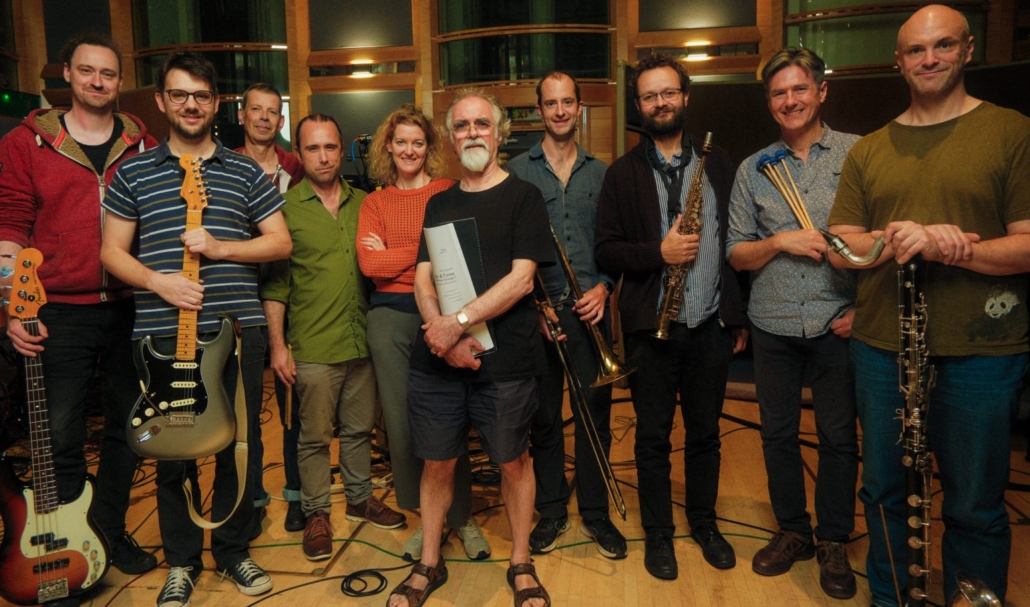
Left to right above Paul Michael bass guitar | Eddy White guitars | Shanti Jayasinha trumpet & flugelhorn | Jonas Golland drums | Alcyona Mick keys | Chris Sansom conductor | Tom Green trombone | Mick Foster saxes, flutes, bass clarinet | Rob Millett vibes, percussion | Adam Bishop saxes, flutes, bass clarinet
Jazz In Reading’s audience has, over the twenty plus years that we have been going, been open to the wide variety of music that falls within the jazz genre. So we welcome unique opportunities to present you with original, exciting new music and new musicians that you may not have heard before.
As we do not have a gig in November, take your opportunity on 25 October to keep those jazz vibes coursing through you by coming to see and hear the ten strong Perfect Stranger band perform Chris Sansom’s music, created specifically for them using ‘classical’ principles, incorporating the musical vocabulary and sounds of jazz, funk and rock.
Honed to perfection over the past few years and now recorded, with the album “Unfinished Business” launch tour starting at Progress.
Imagine these superb musicians performing live at Progress. We think it will be a Wow occasion.
Hope you can make it.

Jazz On Air
HOT BISCUITS
MADE BY sTEVE bEWICK
Hi, Steve Bewick here
With your HOT BISCUITS this week, you can also delight in a little Bebop with Rick Burrows, Paul Forbes, Dave Perry, Nick Harris and Phil Boast. This comes from a session by the guys, known by their group name of Boplicity, that was recorded in The White Swan pub in South Manchester.
Also included in the broadcast is Slowly Rolling Camera with `Evergreen.`
The Official Sonny Rollins Page, deliver Freedom Weaver and Wayne Shortertakes us to Gravity Unbound.`
Kevin Figes Music will remind you that `You Are Here,` and we will also hear Slawek Dudar
We will close the show with Richard Fairhurst`s Inside/Outside. If this is of interest, then please follow ths link below and enjoy what you hear. Please then PASS IT ON and tell your like-minded arts-loving friends that they can find me at www.mixcloud.com/stevebewick/ 24/07.
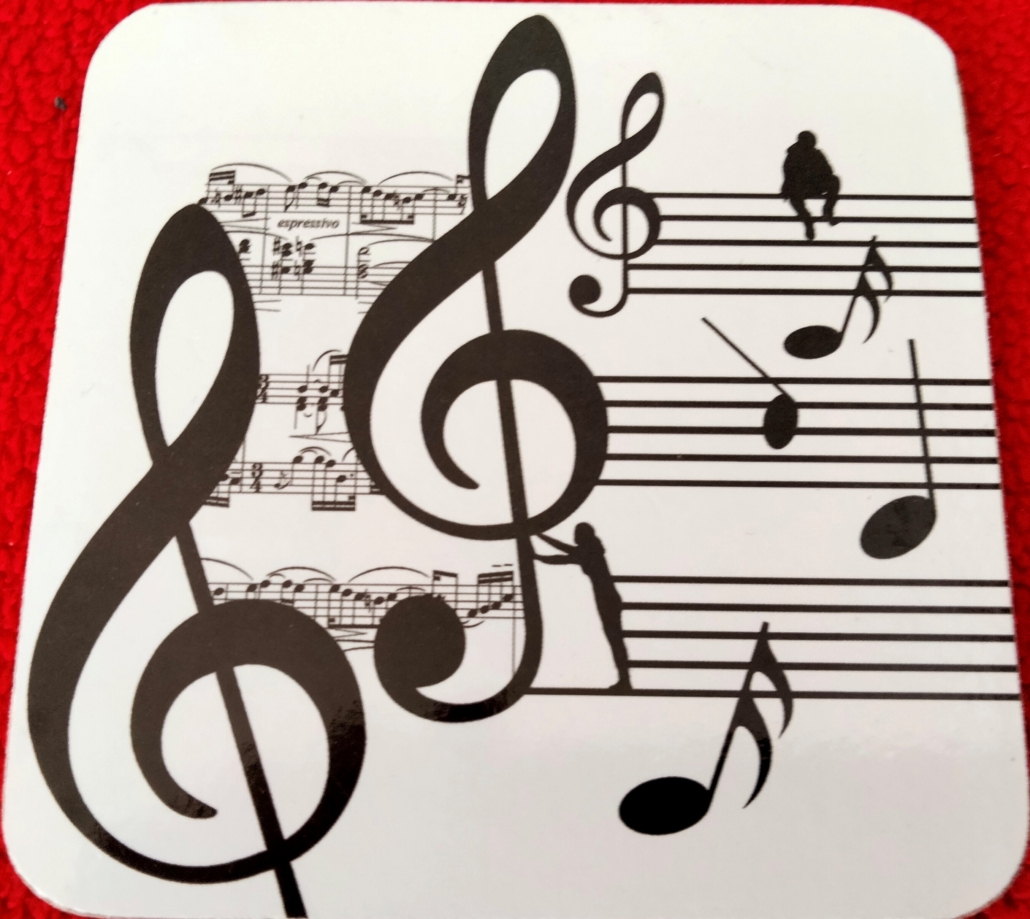
3 ) Live Music
Portsmouth 2024
NICOLA MEECHAM, Menuhin Room,
review by David Green in newsletter

It was thirty years, my homework tells me, before Beethoven’s Piano Sonata no. 23, op. 57, acquired its ‘impassioned’ title. It wouldn’t be his only piece it could be applied to but such names can only pass into common usage by popular consent. Among the crueller revenges that fate took on Beethoven as retribution for his monumental musical gift was the onset of his loss of hearing, from about 1803, and it’s hard not to think that the Appassionata was at least in part his ‘rage, rage against the dying of the sound’, about 150 years before Dylan Thomas exhorted us all to do similarly against that of the light.
Fate might be the point as the ‘fate motif’ that it opens with is not far from that of the Fifth Symphony. Adopting his heroic stance, Beethoven tempts the pianist to get carried away into something too grandiose but Nicola Meecham is wise to that and informed her performance with nuance and expression to provide the necessary contours on this mountain. She opens the Andante with a dampened statement of the theme, almost staccato it seemed to me, before it blossoms into the sumptuous variations.
The Allegro becomes Presto with each hand busier in its turn or with them busy in unison. Beethoven is grandstanding, not for the first time, but in his case it doesn’t count as a bad habit. I’m often very taken with musicians like Nicola who play from memory and envy what they carry in their memory, obviating the necessity of carrying round with them a gadget with earpieces in order to have music wherever they go.
I only wondered if putting the big ticket item first might overshadow what was to follow. He’s not an easy act to follow. Boris Pasternak, better known for writing film scripts for Omar Sharif and Julie Christie, could have devoted his life to music but chose literature instead. His Two Preludes here were broad in vision if short in duration hinting that there might have been a Zhivago Symphony in him but Scriabin took the other route and Nicola ended with his Six Preludes, op. 13, and Sonata-Fantasy, op. 19, beginning with some portent in the Maestoso before the frillier Allegro and on into a sea of lulls and fff that one could happily get lost in and, I have to admit, I did. Not that it detracted from the enjoyment.
Nicola readily and impressively maintained the tradition and high standards of the Menuhin Room series. I’d be more superlative if I saw less of such things because, by definition, not everything can be special but it happens that most things are and that makes a nonsense of the language. Recent weeks have been tremendous. I don’t really want a rest from such things but I’m going to have one. It might help re-set the battered lexicon, the ‘word-hoard’ as Seamus Heaney called it, before the Autumn season across the region where I can already see a litany of wonderful-looking things lined up in wait.
Live Music Coming To The Camel House
THE IKARO QUARTET.
October 18th at 19.00 preview by newsletter
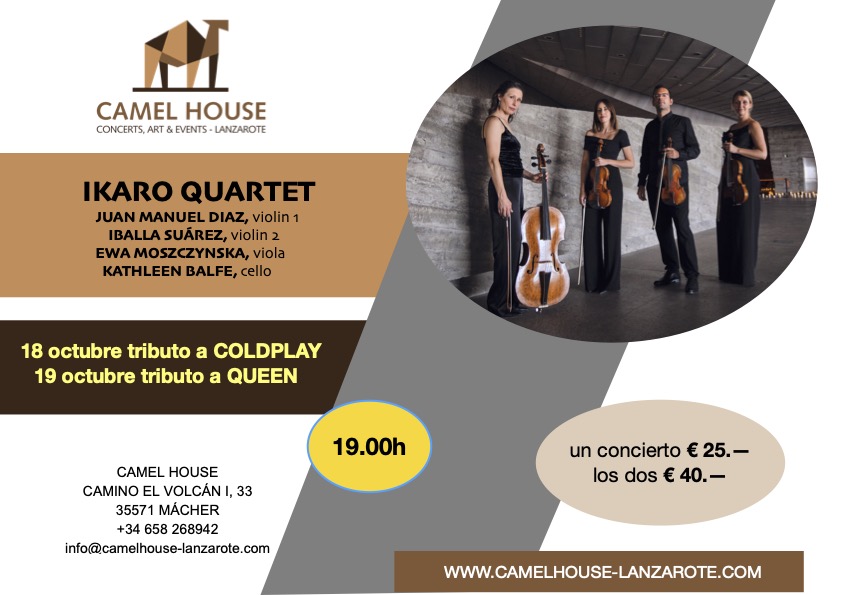
On 18 and 19 October, we present a string quartet that has dared to interpret rock and pop music. Apparently with great success.
It is also a risk for us, as the style differs significantly from previous concerts.
Our idea is to organise concerts with good quality music from different genres.
Why don’t you get involved and come along to one or both evenings?

editor´s note: We have attended and thoroughly enjoyed several classical concerts at this unique venue on Lanzarote. The land the property is built on offers a 180 degree view right along the coast. The sunsets are glorious and quite often the interval is set to facilitate a refreshing glass of wine in the courtyard adjacent to the auditorium. The music we hear has usually been penned by some of the most loved composers of our history and is inevitably played to its finest by the excellent musicians invited to do so.
We have chosen to attend the Coldplay session though we could have as happily chosen the Queen event.
It all sounds very intriguing and we look forward to placing our review in sidetracks & detours during w/c 28th October.
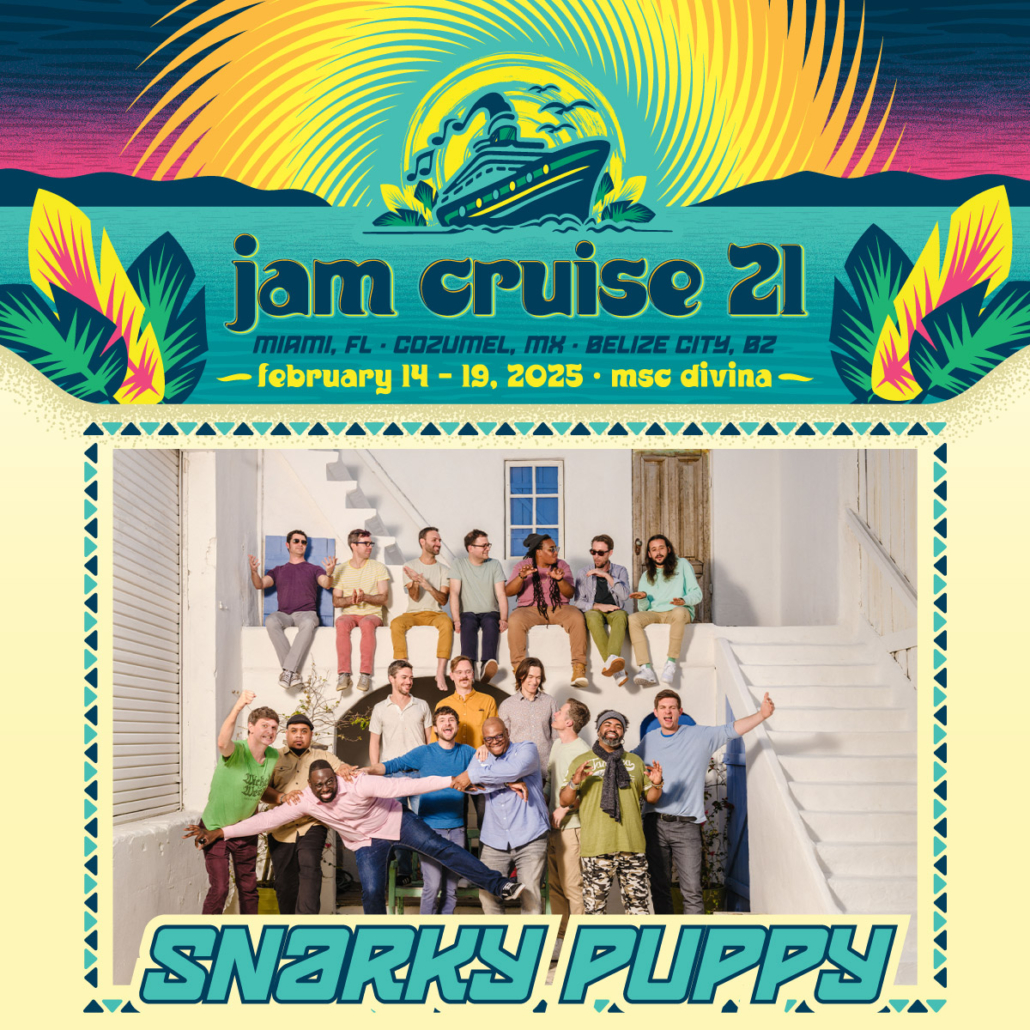
Live Music
SNARKY PUPPY at sea
previewed by promotional literature
All Aboard Jam Cruise! Join Us On A 5 Night Music Vacation.
We’re gearing up for two performances on Jam Cruise in February. Set sail on luxury cruise ship the MSC Divina for five days sailing the Caribbean, plus port stops in Mexico and Belize.
There are over 30 bands playing multiple shows around the clock on eight different stages with tons of good vibes, great tunes, special sets, and more in store.
*Jam Cruise is 90% Sold Out but cabins are still available.
search details on line.

Live Music Coming In 2025
BRUCE SPRINGSTEEN & E Street Band
previewed by I Love Manchester newsletter
Prepare yourself for an unforgettable night packed with iconic hits, raw energy, and a performance like no other.
From “Born to Run” to “Dancing in the Dark,” this is your chance to witness one of the greatest live acts in the world at the UK’s newest venue.
The announcement of new 2025 tour dates arrives shortly before the release of “Road Diary: Bruce Springsteen (left) and The E Street Band,” a Thom Zimny-directed film coming to Hulu and Disney+ on October 25. Offering the most in-depth look ever at the creation of Springsteen and The E Street Band’s legendary live performances, the official trailer for “Road Diary” was released last week and can be previewed at BruceSpringsteen.net
Bruce Springsteen & The E Street Band
at Co-op Live, Manchester UK
book now for 17th & 20th May 2025

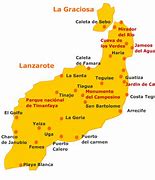
4) Island Insights
Live And Recorded Music RIKABANDA,
by Norman Warwick

The protagonists of the Rikabanda orchestra, Edmundo García, its director, and Nhoa, one of the orchestra’s members have been talking to the music media about their origins and how they have evolved as a band.
Rikabanda was founded in 2007, but its director explains that they have evolved and transformed over time. Their music has already reached all the islands of the archipelago and at the moment they are “14 musicians, plus sound technicians, lighting technicians and social media technicians.”
El Chiringuito, from the Mega channel, is one of the new songs by Rikabanda; a Lanzarote group that has crossed generic borders.
The Lanzarote-based orchestra Rikabanda has achieved more than 100,000 views on YouTube after covering the summer song ‘Hay Lupita’ by the Dominican Lomiiel.
In this way, Rikabanda has evolved from a “conventional orchestra” to what it is today, placed at the top of the island scene.
Two months ago, several of the members of Rikabanda were on Lancelot Television giving an interview to talk about their career and how over time they have changed the direction of their music, creating their own songs whilst taking on productions to give them their personal touch; as in this latest case of ‘Hay Lupita’.
Dominican Lomiiel conquered social media thanks to Hay Lupita, a song written and produced by the young artist and inspired by the salsa song by Chiquito Team Band.
According to a statement, the song has become a favuorite of celebrities and content creators for dances, challenges, videos and trends; which has allowed it to position itself on the music charts in several countries.
“It is the most listened to song on Lomiiel’s digital platforms, with more than 18 million plays on Spotify and views on YouTube. Hay Lupita made the Dominican debut on Billboard’s Hot Latin Songs list, marking a before and after in his career,” said the artist’s team.


5) Reader´s Perspective; All Points Forward
CHANGING FACE OF MUSIC ROW
by Peter Pearson
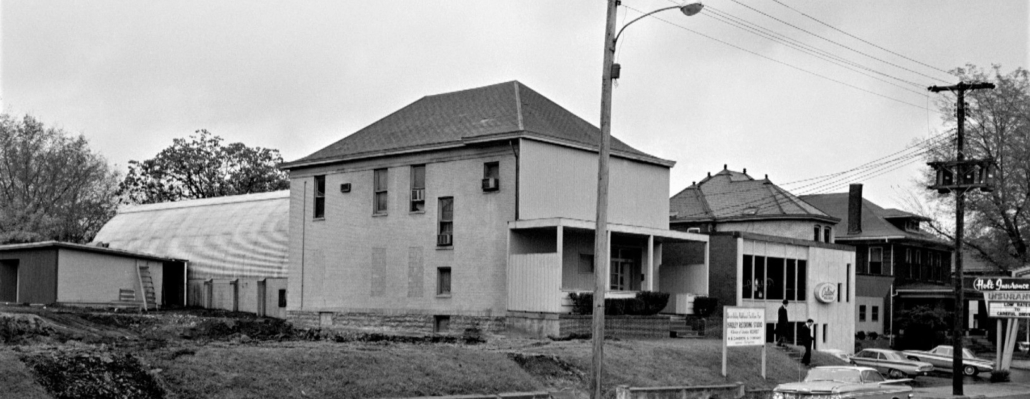
As I described in my piece” Nashville The Roots Of Music City”, the birth of Music Row started in 1955 with Harold and Owen Bradley purchasing a small house at 806 16th Avenue South, an area that had recently been re-zoned as a commercial district. They converted the house to a recording studio and attached an army surplus Quonset hut in the backyard to create extra space, intending to use it as a television studio. However, the audio side of things quickly outgrew the house and moved into the Quonset Hut.
Thereafter the studio would be forever known as the Quonset Hut. (right)
Harold Bradley, in more recent times said that they were simply looking for an affordable place to get them through. They never thought that the area would develop as it did.
The area was a residential area a couple of miles from Nashville City Centre.The brothers were attracted by the low price of property in the area. Many of the small bungalows in the area had fallen into disrepair as there was a growing trend to suburbanisation and demand for residential property in an area so close to the city had plummeted.
With the boom in country music fuelled in Nashville by WSM radio and the Grand Ole Opry and the lack of recording studios, the Bradleys were soon followed by a host of music related businesses, taking advantage of low property prices and proximity to the city centre and the Opry building. The tree lined residential streets became a bustling business corridor in an area designed for residential living with its narrow road, grass verges and houses. Only the signs outside gave the impression of them being recording studios, music publishers or management offices.
The Bradleys sold the Quonset Hut studio to Columbia in 1962 for $300,000, a tidy return on their investment. The sale included a non compete agreement lasting two years. They then worked with Chet Atkins at RCA, before opening Bradleys Barn Studio in 1964 at a rural location some 17 miles outside Nashville.

For nearly 50 years Music Row has been a success story with the establishment of a unique music related creative community in a relatively small area. Almost like a campus. The cluster of music businesses in the same area meant that you could write, produce, record, release and promote an album without ever leaving the Row. Songwriters would walk just a short distance from one publisher to another in search of a deal. Session musicians would walk from one studio session in the morning to another one just over the road. There was a great deal of collaboration between the businesses, as shown left
It was ideal for the times and for nearly 50 years but things started to change .According to a Nashville Music Row Vision Plan the turning point was the internet and Napster in the late 1990’s, followed by music streaming and the erosion of the industry’s base sale of record albums. Technological change meant that professional quality home studios became available to artists.
Additionally, widespread economic change has impacted on Nashville. Since the 2009 recession its economy and population have boomed unlike any period since World War Two. Explosive growth in residential, office and retail development in downtown Nashville and areas surrounding Music Row means that developers are looking to extend developments into Music Row and beyond.
The most common challenge music-related businesses face in order to remain on the Row is affordability. Between 2010 and 2019 the property values on Music Row increased by 176%. Rising property values eliminate one of the key factors in Music Row’s success—its affordability. Businesses that rent on Music Row experience rental rate hikes as property values increase.
There has been consolidation within the industry with the number of record labels decreasing.
Some have left the Row, desiring newer more effecient offices. Due to high property values it makes more sense to sell land and move into a suitable building outside of the Row rather than to expand or build new on the Row.
As developers move in they are creating high rise buildings for office space and apartments. Campaigners against the developments have photographed the statue of Owen Bradley against the background of building site cranes. A Virgin Hotel has been built on the Row ,destroying the character of the area. Former country artist and now music mogul, Ray Stevens, sold two of his properties on the Row in 2019. One, a group of several early twentieth century bungalows connected to a family trust with guitarist Chet Atkins, sold for more than $11 million to a developer. The developer constructed a glass tower office building. The other unit went for $6 million, also for a non music related development.
Nashville is in somewhat of a bind in that the area is a tourist hotspot and there is a strong lobby to preserve the historic buildings for posterity. In 1977 RCA closed all its Nashville studios. Its famous Studio B is now a historic site, used mainly for public tours and is owned by the Mike Curb Foundation, a non profit organisation. Mike Curb is a former musician who at the age of 18 formed Sidewalk Records and helped start the careers of multiple West Coast rock and roll arists. He has a massive and impressive CV including a career in politics.
When Columbia Records acquired the Bradley Quonset Hut Studio on Music Row they tore the house down and built Columbia Studio A around it. When Columbia moved out, the building, including the Quonset Hut, was bought by The Mike Curb Family Foundation, modernised and let to Belmont University for a fifty year period.

In April of this year The Mike Curb Foundation announced a $58 million gift to Belmont University to generate expansion of its Mike Curb College of Entertainment and Music Business. The funding will “support renovation of existing buildings and construction of a new state-of-the-art facility on Music Row, preserving the area’s rich history while providing innovative spaces for entertainment industry education and collaboration”.
Some critics claim that along with the non music related development, the remainder will become an extension of Belmont University Campus. However, many of the active recording studios on Music Row have been saved from demolition by Mike Curb and have joint use as commercial studios and teaching facilty for Belmont University.
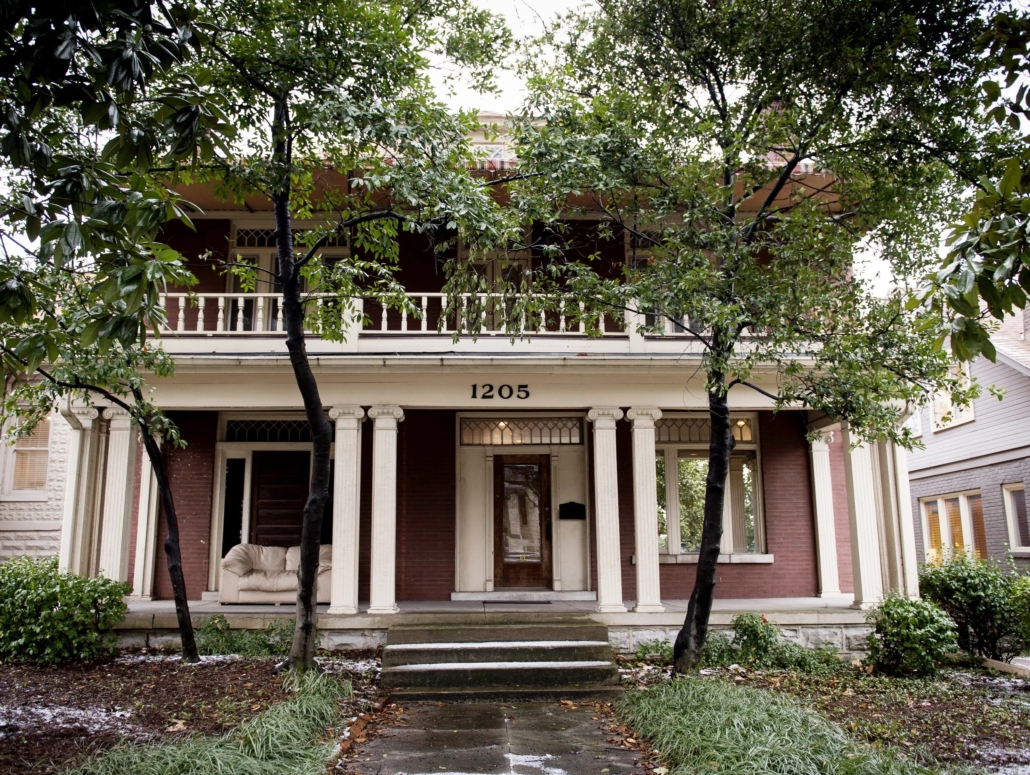
One notable exception is the House of David Recording Studio located on historic 16th Avenue Music Row. The original house, built in 1913, was bought by Nashville A Team musician, David Briggs, in 1972 and converted to a purpose built studio. It remains under the ownership of the Briggs family and continues to operate as a commercial studio.
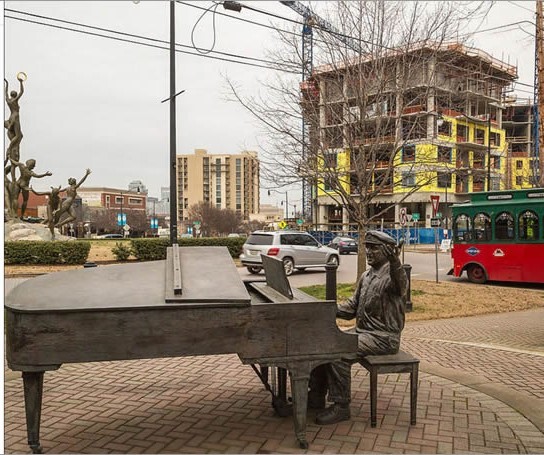
Whilst in most cases tourists visiting the area are only able to view a fraction of what is left of the original buildings, there is still a huge demand to see the historic Music Row.


We begin our sidetracks and detours next week with a tribute to a man who seemed omnipresent on the music scene but who passed away last month. We will also be collecting memories of Kris Kristofferson, another huge loss. So while my volunteer staff head out to distant countries and climes I shall keep the Lanzarote office open for business, though I might just take a walk to find out why Lanzarote Tourist Board got all dressed up recently. I´m hoping, with a fair degree of certainty, that one of the guys or girls scouring the world on our behalf, will return to the office carrying a couple of books about the late Kristofferson, (for the bigger bookshelf we are continually building) pending, surely a new and definitive biography being published. Should all that reading not be enough for you, remember you can always browse our easy to navigate 1,200 or so free-to-read arts-related items in our easy to negotiate archives. PASS IT ON will then return next Sunday 20th October and we´ll all be back on the sidetracks and detours to deliver your daily Monday to Friday not for profit blogs.




Leave a Reply
Want to join the discussion?Feel free to contribute!